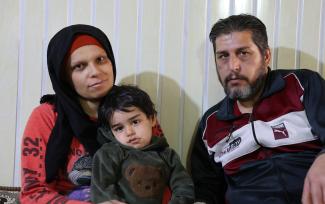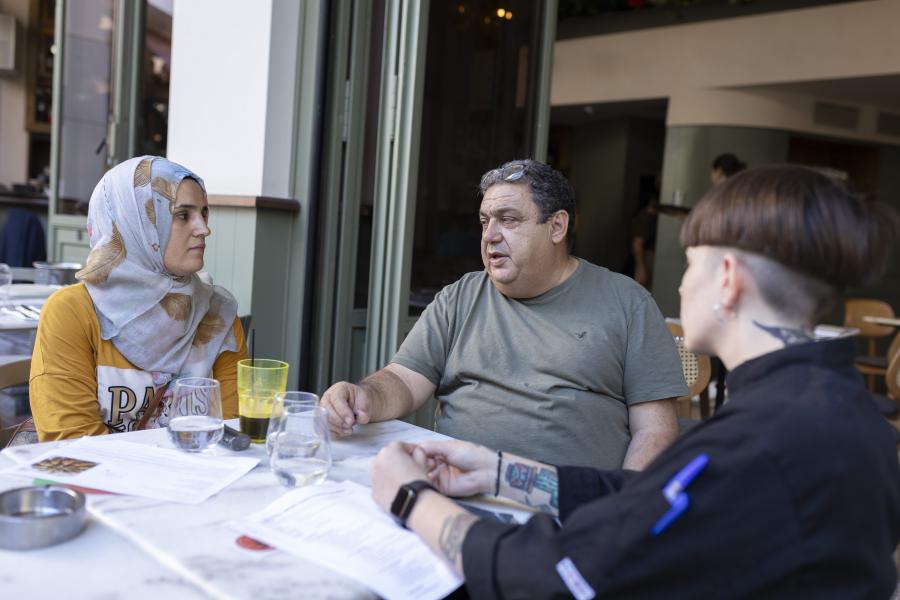Population figures | 2021 - 2025
2025 situation overview
Iraq is currently at a turning point, leaving behind three decades of political turmoil and armed conflicts that deeply impacted its people and public service delivery. Since the end of large-scale military operations, Iraq is experiencing relative stability and advancing towards sustainable development by expanding its fiscal space with increased oil revenues. Despite this, the country still faces protracted humanitarian and development needs, a volatile security situation and a fragile economy.
UNHCR has transitioned from an emergency response in Iraq to a longer-term development approach, with a focus on durable solutions for forcibly displaced populations, in alignment with the UN Sustainable Development and Cooperation Framework.
This transition means UNHCR phasing out individual support for internally displaced people (IDPs) and advocating for the relevant public authorities to strengthen the quality and availability of services to their own population.
There are over 1 million Iraqis who are still internally displaced, with 115,000 residing in 21 IDP camps in the Kurdistan Region of Iraq (KR-I). While many IDPs hope to one day return to their homes, some—because of their specific profiles, such as Yazidis or those with perceived affiliations with extremist groups—may be unable or unwilling to do so.
As a result, UNHCR will advocate for a full range of solutions for IDPs, including integration in their current areas of displacement or relocation to other regions of Iraq, in addition to return to areas of origin.
This is particularly important in view of the Government’s intention to continue to close IDP camps in KR-I. The remaining needs of IDPs in protracted displacement will be largely driven by socioeconomic factors and human rights deficits rather than by their displacement status – which will be addressed through sustainable development interventions. In 2025, according to Iraq’s domestic laws, UNHCR will support the issuance of civil documentation for 8,000 IDPs in complex cases.
In neighbouring countries, UNHCR will support 180,000 Iraqi refugees and asylum-seekers, the vast majority of whom reside in urban/non-camp settings in Türkiye, Jordan, the Syrian Arab Republic, Egypt and Lebanon. UNHCR will provide humanitarian assistance and protection services, as well as support with third-country resettlement for the most vulnerable refugees. Across the region, over 10,300 Iraqis will be targeted for resettlement in 2025.
Financial overview
Legal assistance helps Syrian refugee get key documents and lifesaving treatment in Iraq
By Hamzeh Almomani in Erbil and Farha Bhoyroo in Baghdad, Iraq
During the first weeks of her pregnancy, Abeer felt constantly unwell, which raised concerns about her health. Finding out the criticality of her condition, she needed medical treatment. To receive any treatment she needed identity documents.
Read the story










